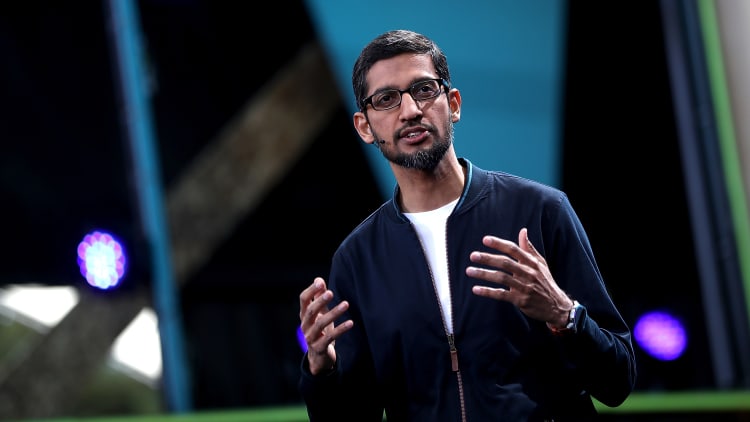Long before they started battling it out in court, Google and Uber had a familial relationship.
"It was like big brother and little brother," former Uber CEO Travis Kalanick said as part of his testimony during the trade secrets trial between Uber and Waymo that is happening this week in San Francisco. Waymo is the self-driving car division of Google parent company Alphabet, and was spun out from Google in 2016.
When Google's venture capital arm invested $258 million into Uber in 2013, Kalanick didn't see the two companies as being competitive, since Google was working on autonomous vehicles and Uber was working on ride-sharing.

Google CEO Larry Page even took Kalanick for a ride in a self-driving car after the investment, and the two companies discussed possible partnerships, according to Kalanick.
However, things started to fall apart in 2015 when rumors swirled that Google was getting into ride sharing. Kalanick emailed David Drummond, the Google exec who was on Uber's board of directors, to ask what was going on.
As Uber lost confidence in an Google partnership coming to fruition, the company hired a bunch of autonomous vehicle engineers from Carnegie Mellon. That move, Kalanick says, upset Page. "He was sort of angsty," Kalanick testified.
Ultimately, Uber acquired the self-driving truck company Otto in 2016, which was founded by a former Google engineer Anthony Levandowski, around whom this week's trial hangs.
Kalanick also testified that after Uber acquired Otto, but before Waymo filed its lawsuit, he called Page to assure him that Uber was not working on flying cars (Page had invested in two flying vehicle companies). Kalanick said that he also tried to "broach the subject of a partnership" but that Page was again upset with Uber for hiring Waymo engineers. Kalanick added that the two did not discuss Levandowski or trade secrets during that October 2016 call.
Ultimately, Waymo is trying to prove that Uber improperly acquired, used, and benefited from eight "trade secrets" taken by Levandowski.
Over the course of the proceedings so far, Waymo's legal team has tried to paint Uber and Kalanick as desperate to catch up to its self-driving car efforts "at all costs," while Uber's team has been trying to position Waymo's lawsuit against it as an act of vindictiveness.
Here are some tweets of the courtroom drama from CNBC reporters on the scene:
WATCH: Alphabet tanks after earnings miss


